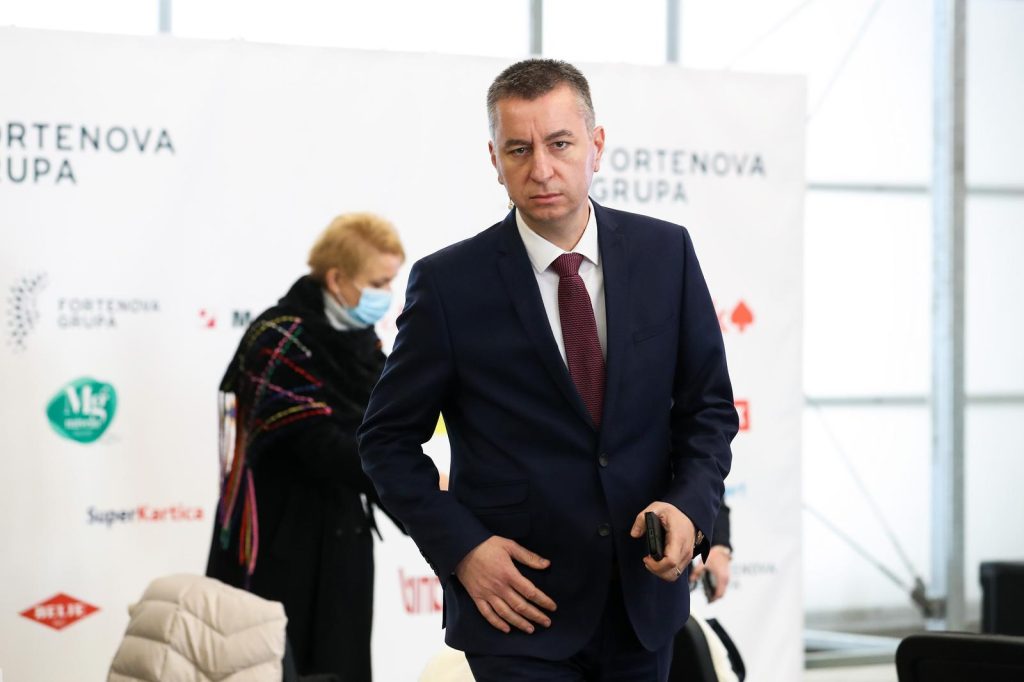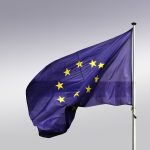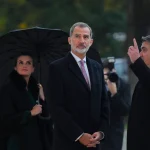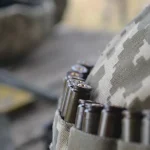Fortenova claims it was unaware of the approval of the sale of Sberbank’s stake to an investor from the UAE, the government says it knew nothing, either
Ever heard of Saik Alketbi? Nobody here has either. The name cropped up for apparently the first time this week in Croatia after the sale of the Russian Sberbank’s stake in this massive Croatian company was sold to him. The government also claims it has absolutely no idea about any of this either. To be more specific, a 43.4% stake has been sold to the Arab investor without any approval, with the transaction having been completed on the final day of October this year.
Sberbank, which is the biggest shareholder in Fortenova, is currently under international sanctions due to the Russian invasion of Ukraine, and it seems that the company hasn’t even been officially notified of this stake sale, which is not only difficult to believe but extremely odd. It’s worth recalling that the first would-have-been buyer of Sberbank’s stake in the company was Indotek from neighbouring Hundary, but it failed in its quest as it didn’t get the necessary approvals. The second attempt at a purchase was made by pension funds, but the transaction was halted.
”Sberbank’s assets are under sanctions and their sale requires the issuance of all of the necessary approvals by the authorities in charge of implementing those sanctions,” Fortenova said in its statement on this rather bizarre matter.
“Fortenova has no information that further approvals to buy Sberbank’s stake have been issued and therefore we don’t see how a valid sale could have gone through. Besides, following the pension funds, there has been no due diligence of the company. If sanctions [those against Russia, which encompass Sberbank] have been violated, then a crime has been committed and the company has not participated in it,” Fortenova stated.
Multiple politicians have voiced their views on this topic, believing that something extremely strange has gone on. Politicial figures from the opposition (read not HDZ) are frothing at the mouth at this new opportunity to tear HDZ a new one, stating that it is impossible that after the initial Agrokor scandal from 2017 and now this latest charade with INA, claiming ”they don’t know anything about it” is an excuse which is wearing thin for HDZ.
Marijuana isn’t addictive, claims parliamentarian when discussing the new on the substance
Ivana Posavec Krivec (social democrats) has stated that marijuana doesn’t lead to addiction. Posavec Krivec’s party was the one to propose a new law on exploiting the full potential of hemp in Croatia.
“The use of marijuana isn’t harmful, it doesn’t lead to addiction, this isn’t a question of the use of hard drugs,” Ivana Posavec Krivec said in Croatian Parliament during the recent debate on the proposed law of her party. With this, she responded to HDZ’s Luka Brcic, who believes that this bill would create an atmosphere where people believe that the use of marijuana is not harmful, which, he believes, isn’t the case. He stressed that like any drug, it can be especially harmful for children and young people. HDZ’s Mladen Karlic also made sure to warn that the proposed law stipulates that every adult can grow nine flowering female plants for their own needs, which, in his opinion, flings the door wide open for the completely free enjoyment of marijuana and “the entry of drug tourism into Croatia”. On top of that, he thinks such a move would result in a significantly higher number of marijuana users.
Posavec Krivec explained that research into marijuana has shown that the cultivation of nine female hemp plants is the amount needed to produce everything needed to relieve pain in seriously ill patients who are using it for relief. She claims that properly legalising and regulating this would prevent such people doing things under the table and purchasing impure things on the market, and it would help boost the domestic economy too. The proposers of the law, Posavec Krivec and Vesna Nadj, both pointed out that hemp has an exceptional economic potential because more than 25,000 different products are produced from it.
“The Club of Social Democrats believes that Croatia must not be at the tail end of European and global trends in the legalisation and liberalisation of hemp in order to exploit its full potential. Croatia must be a country that will be a leader in exploiting all of this plant’s significant potential through this law,” Nadj stated.
PM Andrej Plenkovic says it is in Croatia’s interest for its neigbouring countries to join the European Union (EU)
Prime Minister Andrej Plenkovic (HDZ) stated after the meeting at the Western Balkans Summit 2022 in the German capital of Berlin that it is very much in the Republic of Croatia’s interest that all countries in its immediate neighbourhood become members of the European Union, and he praised Germany’s efforts in reviving the Berlin process.
“The meeting was very good. I think it’s excellent that Chancellor Olaf Scholz decided to continue this initiative that Chancellor Angela Merkel started back in 2014,” Plenkovic said after the summit ended. Croatia’s energy potential and issues with the political system in Bosnia and Herzegovina were also discussed at the summit.
The Croatian Government finally came to a decision to increase the salaries taken home by those employed in public and state services
The government finally adopted some formal conclusions at a recent session, and the assumption now is that for about 240,000 employees in the public and state sector, their basic salaries and other material rights will be increased in this and the next year. According to the agreement which was finally (and somewhat painfully) reached last Wednesday by the trade unions and Prime Minister Andrej Plenkovic, salaries for employees in the public and state sectors will increase by six percent from October the 1st this year and by two percent from April the 1st next year.
The plan is also to increase Christmas bonuses from 1,500 kuna to 1,750 kuna, among other similar increases. Out of a total of 11 public and state service unions that were involved in negotiations with the government regarding the base increase of late, nine unions accepted the government’s offer, meaning that the conditions for signing the addendum were met because the government’s offer was supported by unions that have more than 50 percent of the total number of members of all unions that participated in the negotiations, as well as unions from at least three of the five areas that were negotiated.
The government’s offer was still not accepted by the Preporod trade union and the Independent Trade Union of employees in science and higher education, considering that it was an insufficient salary increase for them considering the inflationary pressures we’re currently all dealing with.
A six percent increase in the base will cost the state 600 million kuna, and it will be provided through budget rebalancing and redistribution, while a two percent increase will require a slightly lesser sum of 500 million kuna. Plenkovic said that the agreement with the unions testifies that they reached an agreement through a high-quality and open dialogue with the leaders of the unions, which confirmed the government’s commitment to social dialogue and the strengthening of social partnership. Plenkovic also stated that their end goal is to support workers and employees as much as possible.
President Zoran Milanovic (SDP) wasn’t invited to an important war anniversary
As All Saints’ Day was marked, many delegations were present at Zagreb’s Mirogoj cemetery. Wreaths were laid and candles were lit by Prime Minister Andrej Plenkovic, Minister of Croatian Veterans Tomo Medved, Minister of the Interior Davor Bozinovic, and the President of the Croatian Parliament, Gordan Jandrokovic.
“These are the days when we remember the dead with sadness and reverence, especially those who lost their lives during the Homeland War. Over these days, we also think about the suffering of others that we observe, especially over in Ukraine. I hope that all this week, and in all of Croatia’s cemeteries, a dignified atmosphere will take hold, and that we’ll all remember those who are no longer among us in peace and quiet,” said Nina Obuljen Korzinek, Minister of Culture and Media.
“We urge that anniversaries are not misused for political purposes,” she stated when asked if the tragic anniversary of the Vukovar massacre later this month will end up being misused for political purposes by certain individuals and groups in Croatian politics.
“What we as a government do and say is aimed exclusively at coming together [to remember]. If someone creates an agenda on divisions, I think people will recognise that, and Minister Tomo Medved clearly emphasised that we as a nation are facing one of the saddest months of the year, especially for the people of Vukovar, Skabrnja and other Croatian cities which suffered heavy casualties back in 1991. We always call for us to come together in silence, with dignity, and that neither anniversaries nor commemorations be misused for any political goals, especially those that cause unrest, discord and divisions in society.”
Commenting on the situation with Milanovic not being invited to an important anniversary, Obuljen Korzinek said that “nobody is boycotting anyone”.
“We’re doing our job responsibly. There are actors in society who only and exclusively have an agenda of inciting hatred, throwing out unacceptable theses and narratives, people will be quick to recognise that. I think that especially from this place we should call for dignity in our behaviour, but also in public communication,” she said.
The minister didn’t want to directly comment on the commemoration of the 30th anniversary of the liberation of southern Croatia, to which President Milanovic was not invited. She briefly and simply said that no one would face any issues because of it.
Plenkovic meets with the Italians in Pula, stating that he wants to further strengthen Croatian-Italian relations going forward
During his recent stay in Pula, Plenkovic with representatives of the Italian Union and emphasised their great commitment to maintain and further develop the culture and identity of their national community in these areas.
“The cooperation between the government, the Italian Union and Istria County as a whole can serve as an excellent example for all other national communities across Croatia. We also discussed the framework of our cooperation today, noting that there is a special chapter in the government’s operational plan that concerns the activities of national communities,” said Plenkovic adding that the goal of both Croatia and Italy is to strengthen their relations and level of mutual cooperation.
The president of the Italian Union, Maurizio Tremul, expressed his satisfaction with the conversation he’d had with the Croatian prime minister, noting that they discussed a number of topics aimed at improving the position of members of the Italian minority population across Istria, and thanked the Prime Minister for the government’s support for the Italian national community.
For more on Croatian politics, make sure to follow our dedicated section and keep an eye out for our Week in Croatian Politics articles which are published every Friday.











